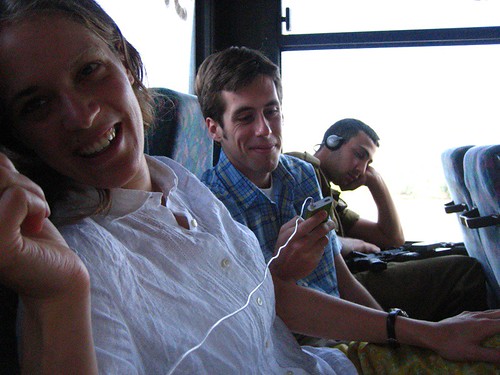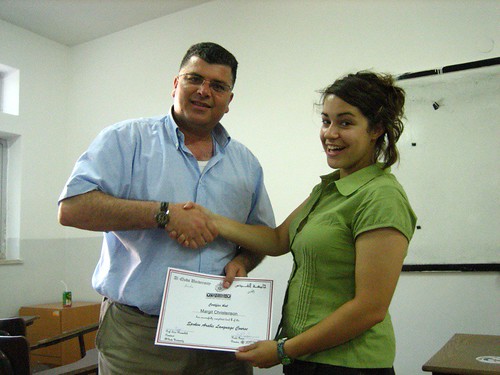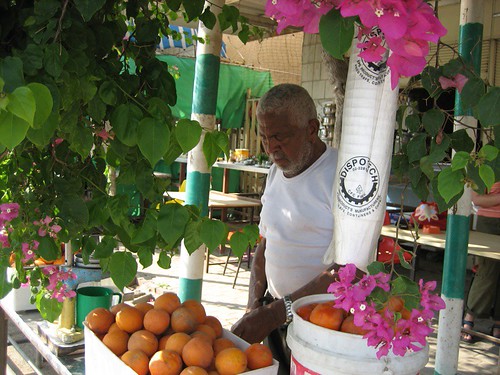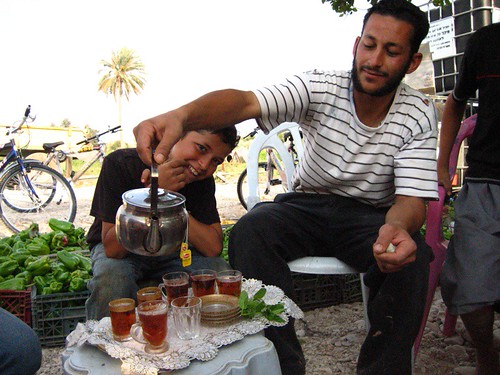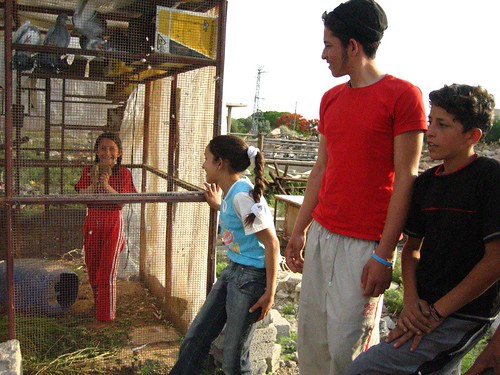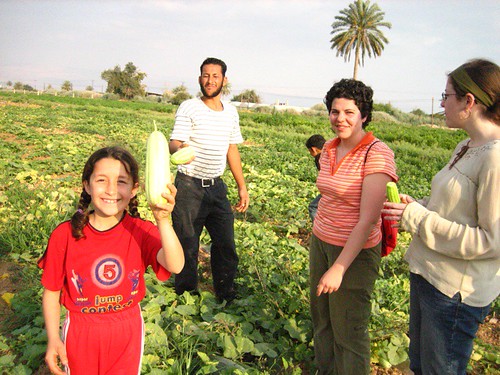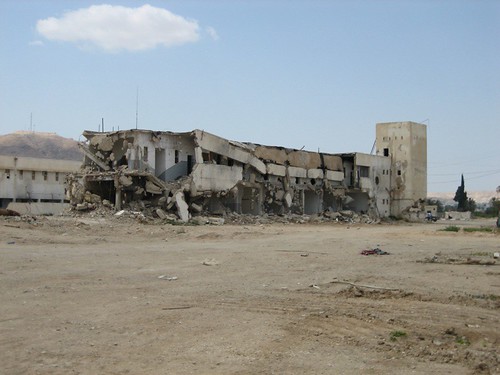I feel that everyone should travel through the West Bank to get an idea of what it’s like to live in Palestine under the occupation. We got up to Nablus easily, which means a bus, a passport check by an armed soldier, a second bus, a wait to get onto a settler road, a walk through a checkpoint and a taxi to the city center. Getting back to Jerusalem, however, took a bit more time. First there was the taxi to the walk-through checkpoint where soldiers train their guns at your knees as you walk through the gate and shove you against the fence to get your line into single-file. Then a taxi van with no AC, which waited nearly an hour and a half at a second drive-through checkpoint. The mother with her baby in the backseat weren’t doing well in the suffocating heat, and Julie chatted with them and shared her water while Grete, Andy and I dozed in a stuporous sleep. Once through the wait at the checkpoint, we drove through the settlement-dotted Palestinian countryside to Ramallah where we hopped off at Qalandiya checkpoint, and went through the round of turnstiles and got the nod from an 18-year-old soldier who chomped her gum and sported a ‘tude like only 18-year-olds can do. Then a bus which took us back to Jerusalem, with a random stop on a street corner when yet another soldier got on the bus and checked the passports of everyone onboard. About a three-hour trip for a 30-mile distance. And we were just returning from a day trip. Not in labor or trying to get to a city to sell vegetables, like the some of the locals who have to contend with these hassles all the time.
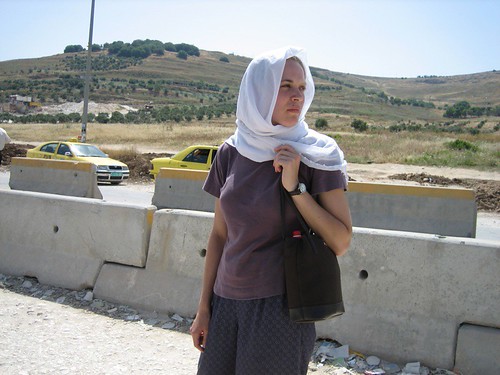
Grete at the checkpoint
Nablus is set in the beautiful rocky hills north of Jerusalem and Ramallah. “Lawless” was how the town was once described to me, but besides a crazed apricot vender wielding a huge knife, the people of Nablus were friendly in the typical Palestinian fashion. My favorites were two brothers, about fifteen and sixteen years old, who stopped to talk to us while were buying kiffyas at a shop. Once they established that we weren’t Israeli soldiers they talked about Nablus, about the soldiers blowing something up on the outskirts of town the day before, and how one of the boys had been shot in the knee by a soldier in downtown Nablus during one of the not infrequent bouts of gunfire. We ran into them a second time and they told us about their dog Mushi and led us to the sweet shop for the knaffe we had come for.
There’s only so much to see in a town that’s lost all possibility of a tourist industry, so after a stroll through the Old City, a stop at a shop selling Palestinian pride paraphenelia, and a grease-laden sugar shock of knaffe, we took a cab to one of the few sites in town: Jacob’s Well in the basement of a Greek Orthodox church. The gate was answered by a pony-tailed priest who was out watering the courtyard gardens. He did his thing while we went in the church and met the local man who gives the one-stop tour of the well in the church’s basement.
Scholars doubt the well’s authenticity as the site mentioned in the Old Testament, but nonetheless it is sacred to both Christians and Jews, and thus has an ugly history surrounding it. In 1979, the Greek Orthodox priest at the church was killed by axe-wielding Israeli settlers, right next to the well in the basement of the church he was protecting. And in 1980 the current priest came to Nablus, filling in for a predecessor who was violently murdered and arriving at a church with bare stone walls. The priest is an amazing artist, and living more or less alone in this compound for the past 26 years, he’s painted the apses and ceilings and domes of the church, wonderful iconic images with draping robes and golden halos that cover the walls and ceilings. And when he’s not turning the once barren sanctuary into a beautiful light-filled one, he’s protecting the church and himself, fending off fifteen attacks on his life since he arrived. The settlers apparently don’t tire of it, and neither has he. He keeps on painting and watering the garden and living alone in this little compound in the middle of Nablus. An amazing man.
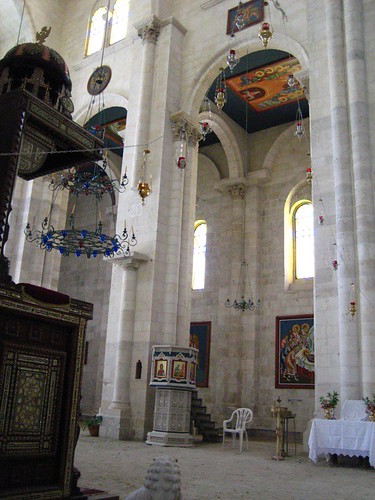
The floor tiles for the sanctuary have been ordered from Greece, but the Israeli government is demanding USD$17,000 in taxes before they’ll let the church receive the shipment. So until it’s waived or dropped to something reasonable, gravel and dirt cover the church floor.
